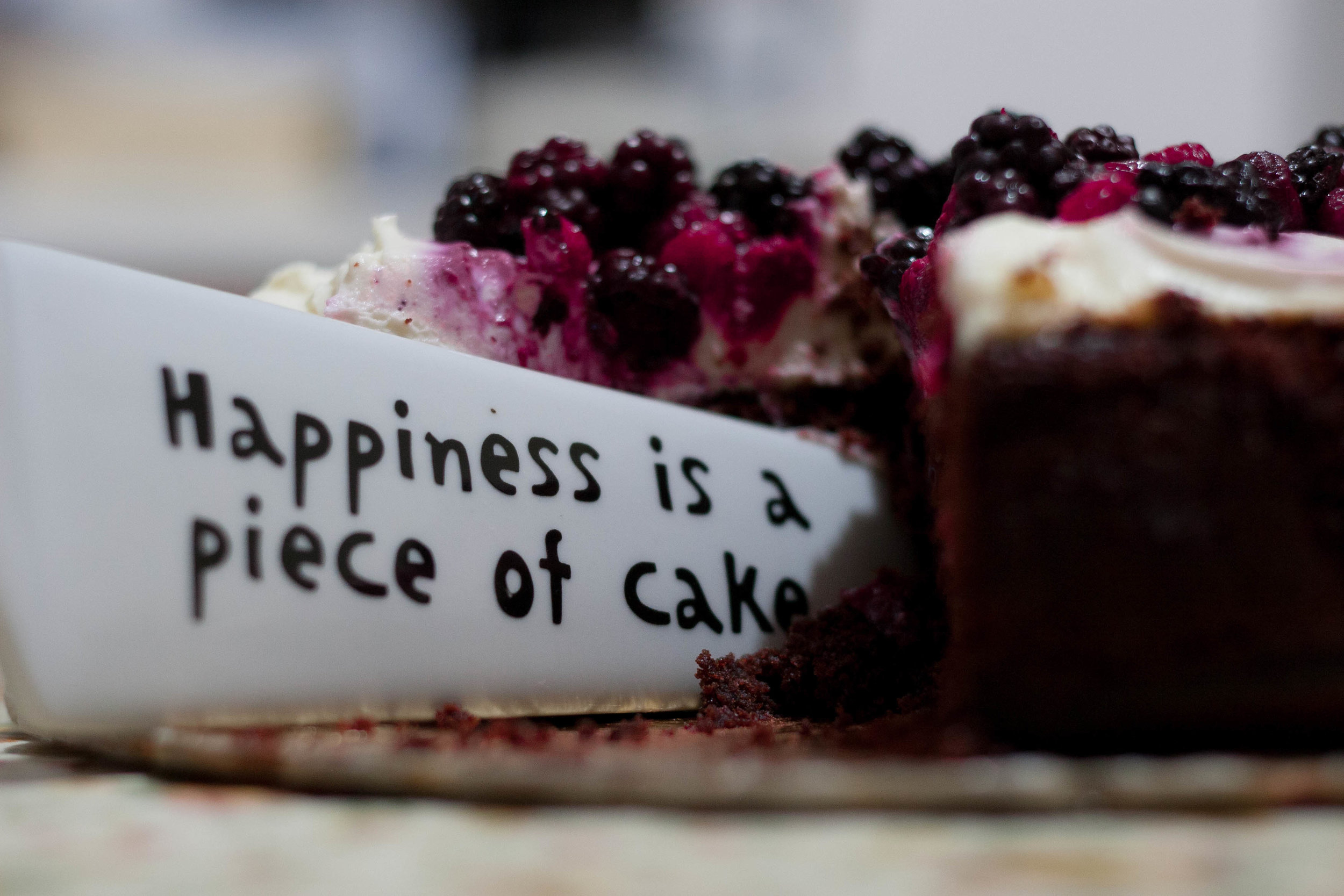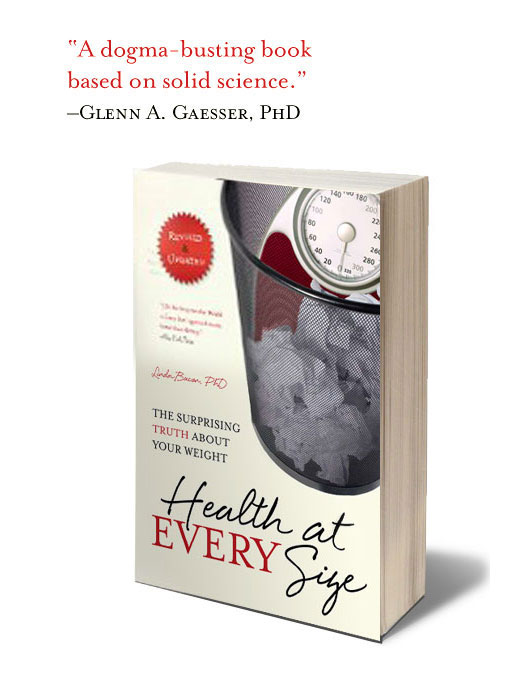My Journey With Bulimia
December 6, 2010
About ten years ago I developed a condition known as bulimia. I never would have guessed that a smart girl like me would struggle with something like that. I knew better. I had learned about eating disorders when I was younger and could never make sense of why someone would force themselves to vomit after eating or avoid eating all together.
I think very differently about eating disorders today. You can be intelligent, self-aware, and informed about eating disorders and still struggle with the “disease.” I remember the first time I displayed signs that I was at risk for developing bulimia. I was reading a book about how bad refined sugar was, and I was doing an excellent job of eliminating it from my diet—that is until I was tempted by a birthday cake brought into work one day. I decided to treat myself to a slice, and as I was finishing it, I felt deeply concerned about how the sugar might be harming my body. I don’t know what made me think of it because I had never chosen to throw up food before (nor did I know of anyone who had), but I quickly went to the bathroom and vomited in a stall.
I felt much better after getting rid of the sugar and didn’t think of it again until a year later. I had begun a big transformation in my life. I was starting to question my faith, my choice of career, the reasons for my failed romantic relationships, etc. I decided to go to counseling, and after a few sessions the counselor asked, “Where is Melissa?” I didn’t understand what she meant, but after some back and forth, she finally explained, “You tell me everything you think you SHOULD do and SHOULD want, but you don’t tell me how YOU feel and what YOU want.”
No one has said anything that has impacted me more deeply than that statement. I realized that I had become so good at assessing what I thought other people wanted that I had become disconnected from my own desires, feelings, and opinions. It’s like they were crowded out by the noise of all the other expectations and demands I thought I had to meet.
After that session, I started concentrating on my inner world and made a lot of effort to to connect more deeply with myself. As part of that exploration, I went back to dance class. Dance was an innate joy for me. It was my childhood passion, something I knew that I didn’t do to please anyone else. I hoped that dance would remind me of what it was like to feel.
And it worked. The feelings that dance inspired in me became recognizable in other areas of my life. In an attempt to follow this, I started spending more time alone so that I could learn to hear my own voice. I stopped going to church so that I could figure out what I really believed about God, without pressure from others. I also got a second job and began saving to spend six months in New York studying dance. New York was a place I had always wanted to live and I wanted to gift myself with the opportunity. And lastly, I decided to finally lose the weight I had gained since high school. For the first time, I was choosing to take my dreams seriously and have confidence in my ability to achieve them.
Several months later the pounds were coming off and I felt amazing. I was losing weight in a healthy way and sticking to a diet plan longer than ever before. I felt like I was discovering my real body: lean, healthy, strong, and energetic. I felt beautiful inside and out.
Somewhere close to my goal weight, I gave in and ate something that I knew was higher than the amount of calories I needed. I became afraid. Seeing myself eat food that was not in my plan made me fear that I was stepping back into old behaviors. In the past, I would stick to a diet for a little while but would always end up giving into temptation, promising myself that I would start again the next day. It was a bad cycle that I didn’t want to continue. Not only that, but I was falling in love with the “new” me, the me that was living from her heart, the me that was committing to her goals, and the me who was coming out of her shell and no longer hiding under extra weight. I felt more confident. I was getting attention from boys, and I was interacting more with people. I didn’t want to lose those things. That’s when I remembered my experience with the sugar elimination diet. I realized that I could just get rid of what I ate in the bathroom and my problem would be solved. So I did.
I never imagined that I would do it again. I thought it was a one-time thing. But it did happen again. Not often, at first. But every time I felt unsure about the calories I had consumed in a meal or I knew that I had too many, I ultimately found myself in the bathroom.
At one point, I became concerned that I might have an eating disorder. I remember going online and looking up the symptoms for bulimia. The criteria noted that an individual must have a certain number of symptoms to be diagnosed. Although I thought I might need help, my symptoms didn’t match enough of the criteria. I wasn’t bingeing at all and I wasn’t vomiting enough over the course of a week. As a result, I worried that I would not be taken seriously, so I was too embarrassed to seek help.
Eventually the symptoms did grow. It became harder to vomit if I didn’t eat enough, so I started to binge. My bulimia began to look very “textbook.”
In May of 2001, I moved to NYC. I accomplished some amazing things and had some wonderful experiences. During that time, I had periods when I went for months without symptoms and others when I vomited every day. I eventually went to counseling again, and during those sessions, my counselor offered me one important insight about bulimia. She simply said, “Maybe you’re not ready to give it up.” For the first time I considered the notion that I could give myself permission to continue. What a scary idea, but she was right to suggest it.
From the time my symptoms began, I was resistant to them. After every purge, I promised myself it would be the last time. My mind was filled with figuring out ways to keep it from happening again. By accepting bulimia’s place in my life, I was able to learn from it and understand why it was there. Since my mind was free from thoughts of guilt, criticism, and resistance, I had space to feel the emotions that bulimia was trying to bring to the surface. I started recognizing the feelings I felt when I would binge and purge and realized how they were connected to other challenges in my life. When I saw the connections, I could start resolving the problems in other ways.
It took awhile, but I eventually let bulimia go. I would stop for several months, have a bout, then stop for many more months, have another bout, then stop for a longer period of time, etc. It’s been over three years now, maybe almost four, since the last period of symptoms.
I believe my bulimia represented a step toward healing. It often felt that people around me viewed bulimia as a problem, as a step backward, as something I was doing wrong. At first, I joined them in this conclusion. But bulimia came into my life when I was beginning a fight to be true to myself and resist the external pressures around me to please others, to follow another’s lead, to do what other people thought was good rather than what I felt was good. I didn’t know how to say “no.” I didn’t know how to negotiate. For years I had been taking in, absorbing and adjusting to what others wanted so that I could gain their approval and respect, ultimately depending on them for assurance and confidence. Simultaneously, I ate all the time. That’s how I gained weight in the first place. I just consumed. I dealt with my problems by eating. I couldn’t say no to food either.
I was finally coming to a point in my life where I wanted to trust myself, but I was scared. It was a battle. I was taking food in (symbolically, others’ opinions, desires, and expectations) but realized that I didn’t want it. So I would push it back out. I was starting to say no and bulimia represented a violent fight inside me.
It’s hard to be yourself in this world. There are a lot of demands, many that are indirect, and it was hard for me to resist the impulse to meet all those demands. Food was my vice, so it makes sense that my relationship with food symbolically paralleled my relationship with myself and with the world.
I think my bulimic episodes ended when I started trusting myself more and worrying less about others’ opinions, worrying less about someone being upset if I told them “no.” I knew that I didn’t want to continue bingeing and purging because the health risks weren’t worth it to me. So, eventually I chose to stop, probably when I had the internal strength to make that choice for myself (rather than just to appease others). Much of it was learning how to have boundaries. Just like I had to learn how to have boundaries with people, I had to learn how to have boundaries with food.
Does this mean that I have perfect boundaries with people now, that I never overeat, that I trust myself completely all the time? No. I still struggle with these things, just like everyone does. But the experiences I had while dealing with bulimia transpired into major changes in my life, changes I certainly benefit from now. My boundaries are much stronger and clearer, and I have more awareness of when I am compromising who I am. In fact, if I ever have the urge overeat or vomit, and I do sometimes, it’s a great clue to me that I’m not dealing with something in my life the way that I need to. I know that now, so I can take a step back, look at the problem, and figure out a more productive solution. It’s funny, because that solution often means asking for help or making myself more vulnerable with someone (letting someone in), or saying what I feel and risking possible rejection - again, all connected to boundaries.
Bulimia is complicated and very layered. I haven’t addressed all of those layers here. Furthermore, I can only speak from my own experience; I don’t mean to represent others’ experiences. Over time, I’ve learned that people’s stories and the reasons behind their personal challenges are varied and don’t all fit into a neat little defined box. But I do believe that for many people, symptoms of bulimia actually symbolize an attempt toward health, the body reacting in order to make something right. I believe the symptoms are symbolic of the internal fight of an individual trying to find their voice, to find confidence, to look for a way to move out of whatever problem they have been dealing with, a problem that existed before symptoms of bulimia showed up. It’s never just about bulimia, it’s always about something much deeper. I think that many individuals with bulimia are trying to figure out how to finally have boundaries—with themselves and with the world. If they can find support to understand and transition through it, support to trust themselves, then the stage after bulimia can be fuller health, greater self-esteem and confidence, and healthier boundaries.
ABOUT MELISSA
Melissa King, LMHC is now a psychotherapist in New York City who works with women, gay/bi men, and couples in the first 10 years of a relationship. Find out more about Melissa here. https://www.myheartdances.com
If you have any questions or need support, please feel free to call me at 610.314.8402 for a free 15 minute phone consultation.
Please comment below and tell us your story !
































